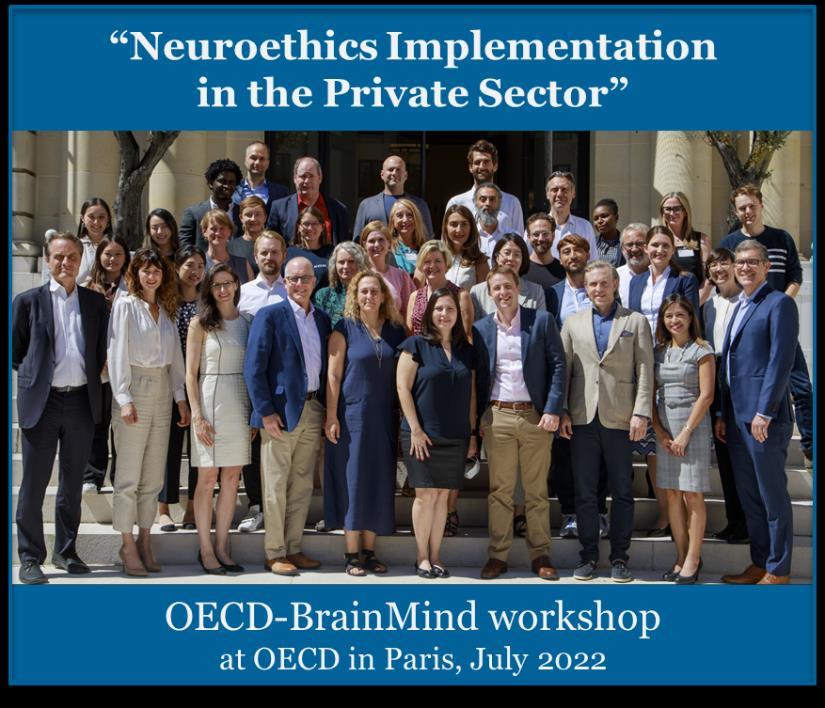
1 minute read
NEUROTECHNOLOGY
The Bio-, Nano- and Converging Technologies (BNCT) Working Party has been engaging in implementation efforts of the Recommendation on Responsible Innovation in Neurotechnology since its adoption by the OECD Council in December 2019. The Recommendation is the first international instrument of its kind in the Neurotechnology field and marks BNCT’s expertise in issues of responsible innovation of emerging technologies [further information and links: https://oe.cd/NeurotechnologyRecommendation].
Implementation efforts in 2021-2022 have consisted of the following activities: (1) dissemination at external events, and conferences; (2) participation at the “Neuroethics roundtable” of the FENS (Federation of European Neuroscience Societies) in July 2022.The event brought together key actors in the field of neuroethics and provided a broad contextual overview as a foundation to discuss and prioritise coordinated actions with the broader neuroscience academic community. The OECD Recommendation and its Principles were subject of discussion at breakout discussions whose inputs informed a concluding panel (3) organisation of capacity building workshops: • 11-12 July 2022: “Neuroethics Implementation in the Private Sector” an in-person workshop coorganised by the OECD and BrainMind (a US-based non-profit organisations that builds a community of brain scientists, entrepreneurs, investors, philanthropists, and academic institutions to accelerate impactful innovation in brain science). o The meeting focused on the implementation of neuroethics frameworks across academia, entrepreneurship, public policy, and investing, including the OECD Recommendation. o 25 interdisciplinary leaders from major neuroscience academic institutions, funding organizations, policymakers, and prominent private sector stakeholders committed to neuroscience innovation attended the event at the OECD o Key points discussed: (1) Emerging challenges for ethical neurotechnology innovation, (2) Existing tools and mechanisms to put ethical principles into practice,(3) Playing a role in the responsible development of neurotechnology o Action points: Develop implementation guidance resources tailored to stakeholders; set-up: Neuro Advisory Network; convene global key neurotechnology stakeholders in Asilomar-like meeting • 19-20 May 2021: “Neurotechnology in and for society: deliberation, stewardship and trust”. 140 participants from 25 countries and 110 different institutions attended the 2-day virtual workshop. Hosted by the Swiss delegation (i.e. the “Zurich Event”), it focused on gathering good practices and experiences related to Principles 5 and 8 of the Recommendation that focus on enabling societal deliberation and cultures of stewardship and trust between the public and
17









